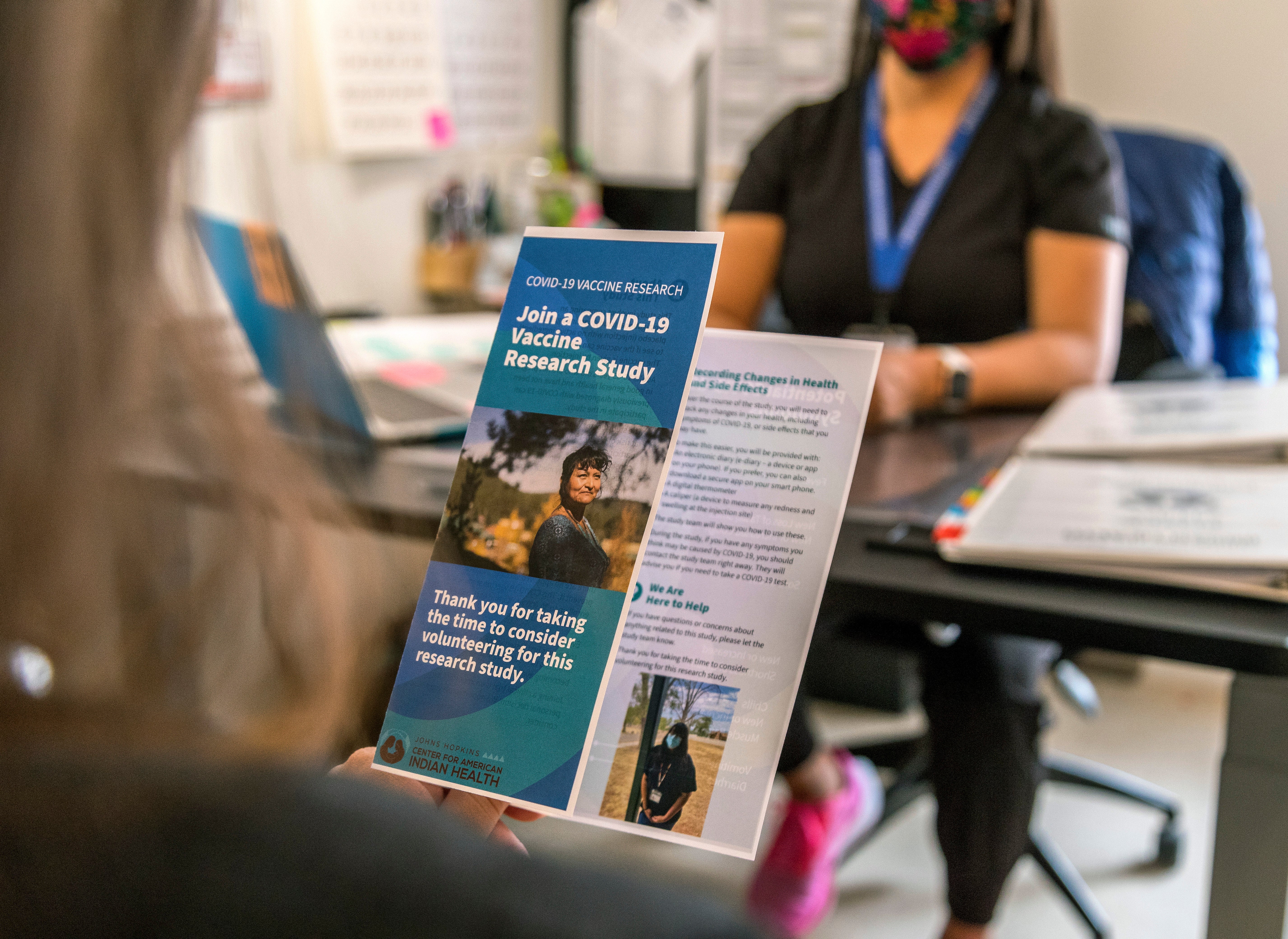VIRUS TODAY: Few Native Americans sign up for virus trials
Few Native American tribes have signed up to take part in clinical trials as coronavirus vaccines are developed

Your support helps us to tell the story
From reproductive rights to climate change to Big Tech, The Independent is on the ground when the story is developing. Whether it's investigating the financials of Elon Musk's pro-Trump PAC or producing our latest documentary, 'The A Word', which shines a light on the American women fighting for reproductive rights, we know how important it is to parse out the facts from the messaging.
At such a critical moment in US history, we need reporters on the ground. Your donation allows us to keep sending journalists to speak to both sides of the story.
The Independent is trusted by Americans across the entire political spectrum. And unlike many other quality news outlets, we choose not to lock Americans out of our reporting and analysis with paywalls. We believe quality journalism should be available to everyone, paid for by those who can afford it.
Your support makes all the difference.Here’s what’s happening Saturday with the pandemic in the U.S.:
THREE THINGS TO KNOW TODAY:
— Few Native American tribes have signed up to take part in clinical trials as coronavirus vaccines are developed. The reasons range from suspicion and distrust tied to unethical practices of the past to the quick nature of the studies, which typically may need several layers of approval from tribes Researchers say that without participation from Native Americans, tribes won’t know which vaccine might best be suited for their citizens. About a handful of tribes have agreed to allow researchers to enroll their citizens in vaccine trials, including in the Southwest and Pacific Northwest. They point to a need to slow the virus among a population that’s been disproportionately affected.
— As communities across the country feel the pain of a surge in coronavirus cases, funeral homes in Southern California say they must turn away grieving families as they run out of space for the bodies piling up. One funeral home is averaging six times its normal rate, or about 30 body removals a day. The head of the California Funeral Directors Association says mortuaries are being “inundated."
— A 95-year-old Ohio woman who became a prolific mask maker during the coronavirus pandemic took a short break this fall while she recovered from COVID-19 herself. Miriam Looker started making masks in the spring at the request of her stepson, a doctor who wanted his patients to wear them. Looker, a longtime quilter, got in the habit of making at least 10 a day. Looker took a month off when she came down with the coronavirus in November. Now she’s feeling like herself again and back to her mask production.
BY THE NUMBERS:
The death toll has climbed to 348,411 and the number of COVID-19 cases rose to 20,205,931. But there is a glimmer of hope as the seven-day rolling average of daily new cases fell from 219,345.9 on Dec. 18 to 194,737.7 on Jan. 1 and the seven-day rolling average of daily new deaths dipped slightly from 2,580 to 2,506 during the same period.
QUOTABLE: “I’ve been in the funeral industry for 40 years and never in my life did I think that this could happen, that I’d have to tell a family, ‘No, we can’t take your family member,’” said Magda Maldonado, owner of Continental Funeral Home in Los Angeles.
ICYMI: The Senate wrapped up a rare New Year’s Day session with Republicans rejecting President Donald Trump’s demand for $2,000 COVID-19 aid checks. They also overrode his veto of a sweeping defense bill. Together, it was an unusual one-two rebuke at the end of a chaotic Congress.
ON THE HORIZON: Health experts are debating what to tell study volunteers who got a dummy shot instead of a COVID-19 vaccine. Should they be offered the real thing now? Others warn that giving them that option could hurt the long-term results of the studies.
___
Find AP’s full coverage of the coronavirus pandemic at https://apnews.com/hub/coronavirus-pandemic